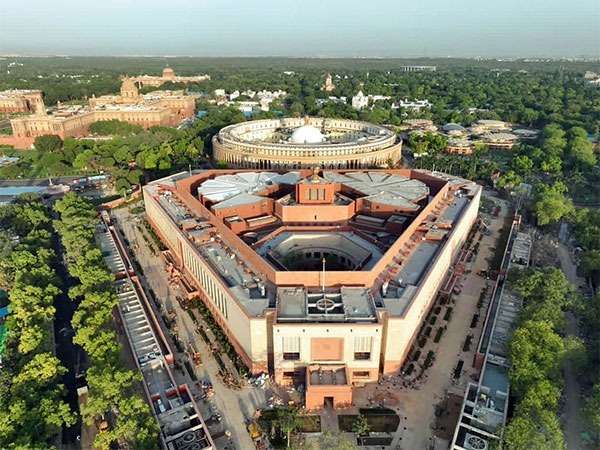Parliament's Winter Session: Key Bills Passed Amid Contention
The Winter Session of Parliament, spanning 26 days, ended with significant legislation passed but also highlighted procedural challenges. Key bills included the Bharatiya Vayuyan Vidheyak and Appropriation Bill. Notably, simultaneous elections and maritime reforms sparked substantial debate. Thirty-three bills remain pending, emphasizing the legislative backlog and complexities faced.

- Country:
- India
The Winter Session of Parliament, which began on November 25, concluded sine die on Friday after a 26-day run. During this period, the Lok Sabha conducted 20 sittings, while the Rajya Sabha met 19 times. According to PRS Legislative Research, the Lok Sabha operated for 52% of its scheduled time and the Rajya Sabha for 39%. Notably, during the opening week, both Houses managed to function less than 10% of the time. An extra sitting of the Lok Sabha on a Saturday was convened to discuss the Constitution's operation.
Parliament successfully passed two significant bills during this session. The Bharatiya Vayuyan Vidheyak, 2024, set to replace the 1934 Aircraft Act, aims to modernize the civil aviation regulatory framework, retaining much of the previous legislation. Another crucial bill, the Appropriation (No. 3) Bill, 2024, authorizes additional budgetary expenditure for the fiscal year 2024-25 and was deemed approved by the Rajya Sabha as a Money Bill with no amendments, having been passed by the Lok Sabha during the Budget Session earlier in the year.
The session saw the introduction of five new bills addressing various legislative priorities. The Constitution (129th Amendment) Bill, proposing concurrent elections for the Lok Sabha and state legislative assemblies, was a notable submission sent to a Joint Parliamentary Committee following opposition demand. Likewise, the Union Territories Laws (Amendment) Bill seeks alignment of elections for Puducherry, Delhi, and Jammu and Kashmir with Lok Sabha polls and is under committee scrutiny.
On December 10, the Merchant Shipping Bill, 2024, was introduced, intending to replace the Merchant Shipping Act of 1958, focusing on overhauling ship registration, maritime training, and pollution control. Additionally, the Coastal Shipping Bill, 2024, is pending in the Lok Sabha, aiming to regulate coastal trade vessels within India's waters.
Several bills from earlier sessions also advanced, including the Banking Laws (Amendment) Bill, 2024, passed by the Lok Sabha, with the Railways and Disaster Management Amendments progressing through one House each. Many longstanding bills, such as the Pesticide Management Bill, 2020, await further resolution, reflecting an extensive legislative backlog.
As the session ended, 33 bills remained pending, underscoring the backlog challenge. Included were recent introductions like the Carriage of Goods by Sea Bill, 2024, and older proposals like the Seeds Bill, 2004. During this session, the Rajya Sabha's Question Hour was halted for significant portions, with the Lok Sabha facing similar issues, emphasizing procedural inefficiencies.
Constitutional discussions dominated this parliamentary session, with significant hours devoted but no short-duration discussions held. Despite numerous adjournment motion notices in the Lok Sabha, none were accepted, paralleling developments in the Rajya Sabha where discussions under Rule 267 were bypassed.
The session also addressed the first supplementary budget for 2024-25, approving additional expenditures amounting to Rs 44,143 crore. The conclusion of the Lok Sabha saw the referral of proposed 'One Nation, One Election' legislation to a Joint Committee, composed of both House members.
With a backdrop of protests from the Treasury and Opposition benches, Speaker Om Birla emphasized the need to maintain parliamentary decorum, cautioning against demonstrations within the Parliament's precincts and urging adherence to established protocols.
Amid this backdrop, parallel protests emerged, with BJP MPs decrying perceived insults against Babasaheb Ambedkar, and the INDIA Bloc calling for accountability from Union Home Minister Amit Shah, underscoring heightened political tensions during the session.
(With inputs from agencies.)










